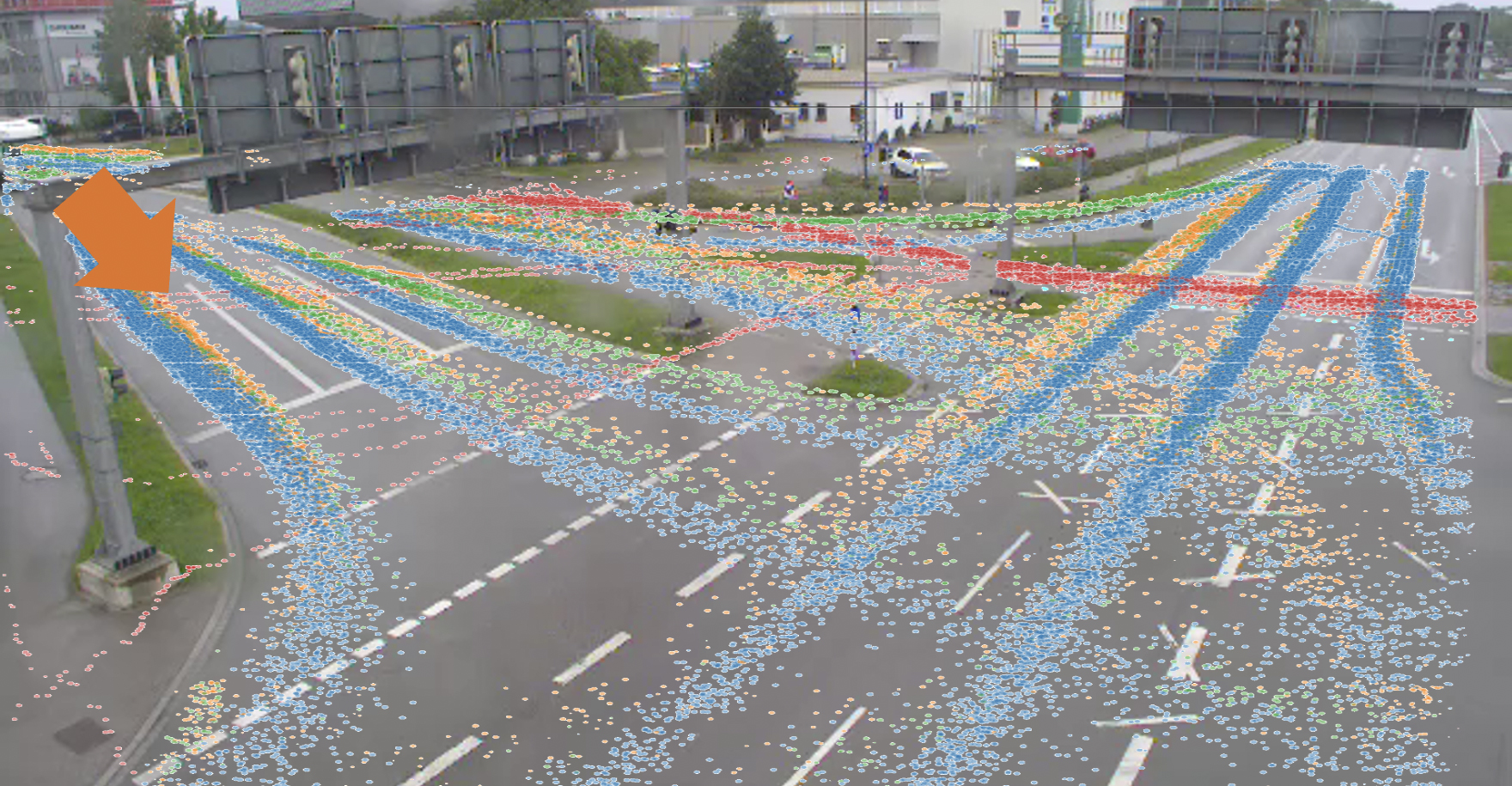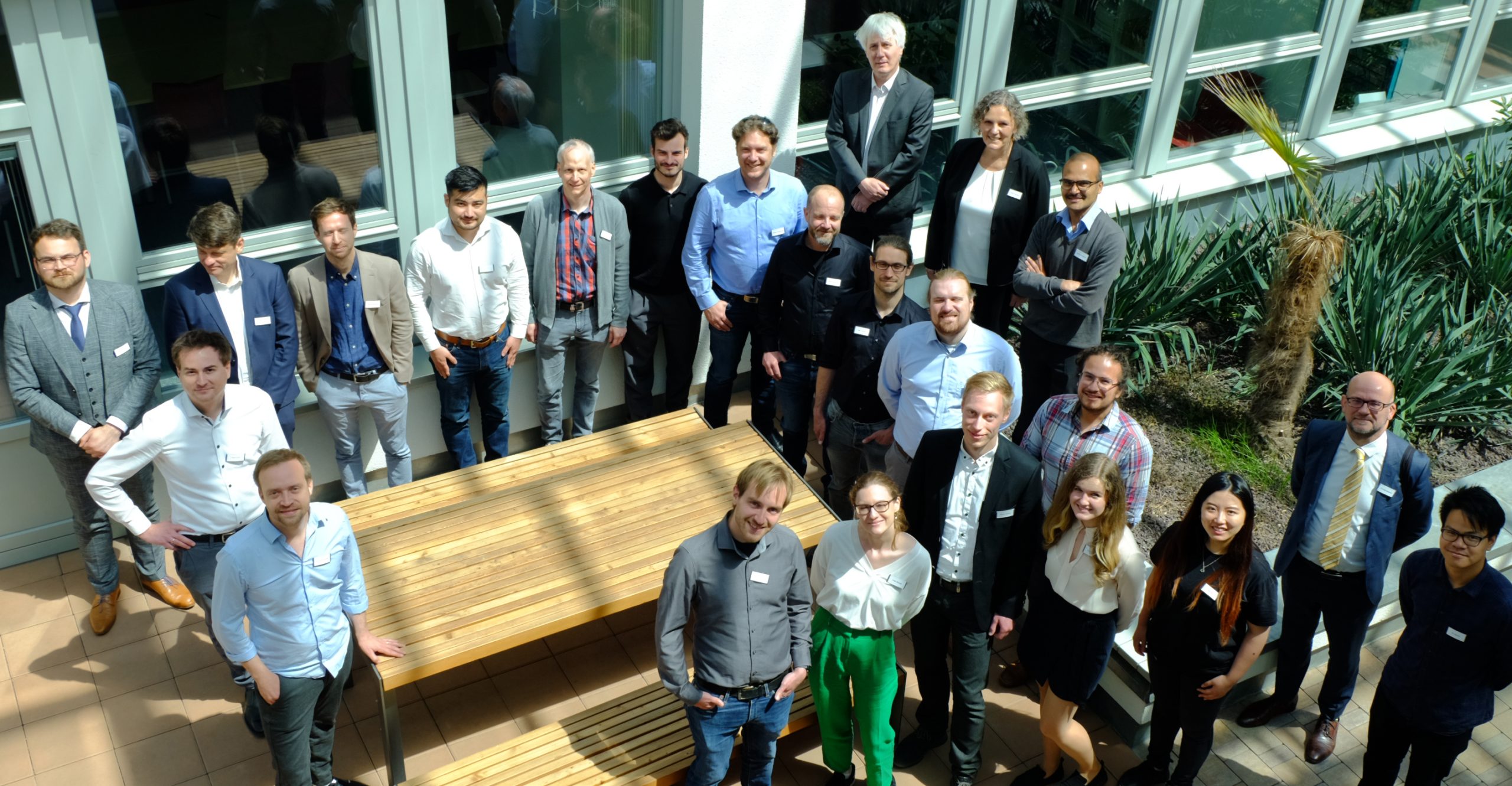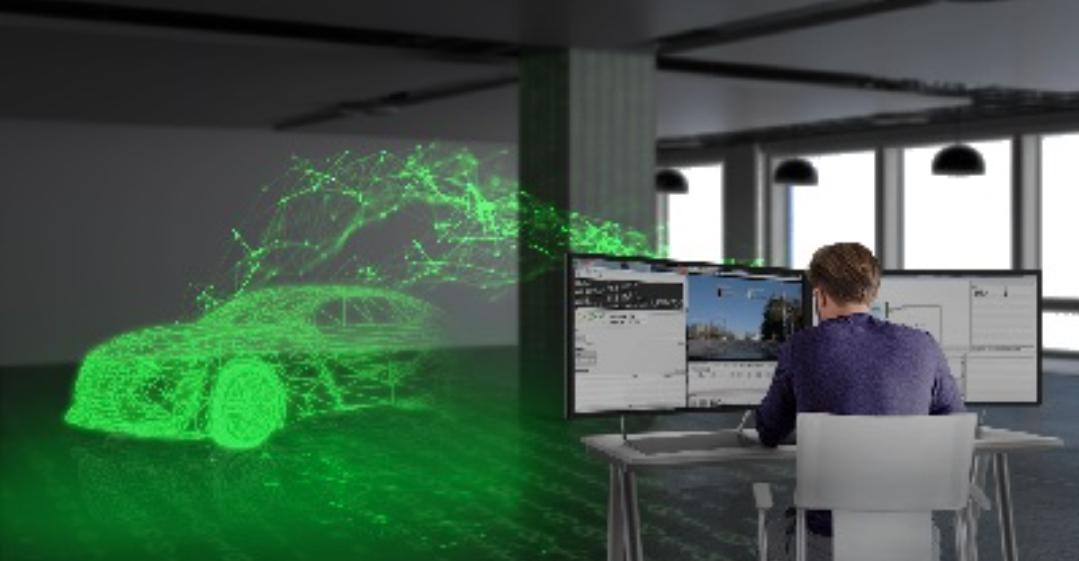NEWS

Cognition Factory: Evaluate and visualize camera data
Since the beginning of research on the digital twin, AI specialist Cognition Factory GmbH has focused on processing camera data. In the meantime Dr. Claus Lenz has deployed a large-scale platform

Digital real-time twin of traffic: ready for series production
Expand the test track, deploy new sensors, decentralize software architecture, fuse sensor data for 24/7 operation of a real-time digital twin, and make data packets public: TU Munich has decisively advanced the Providentia++ research project.

Elektrobit: Coining Test Lab to stationary data
Elektrobit lays the foundation for Big Data evaluations of traffic data. Simon Tiedemann on the developments in P++.
Providentia++: Research for automated driving with external infrastructure
Providentia is a research project that has been funded by the Federal Ministry of Transport and Digital Infrastructure (BMVI) since early 2017. Since early 2020, it has been continued under the name Providentia++ with the Chair of Robotics, Artificial Intelligence and Real-time Systems at the Technical University of Munich’s Department of Informatics serving as consortium leader. The project’s goal is to research the flow of information between vehicles and infrastructure along the A9 highway extending into the urban area, to create a digital twin of the current traffic situation, and from this to develop value-added services.
Video: besserdrei.de (with english subtitles)
TECHNOLOGY
Displaying traffic digitally, recognizing vehicles, and transmitting data in real time: These are three of the tasks in store for the technologies. A key role is played by sensors, perception (with object recognition and tracking, as well as data fusion), and 5G wireless technology. In addition to these basic technologies, several other tools serve the visual representation and integration of data, such as the open-source simulator CARLA and the middleware and library framework ROS.
VALUE-ADDED SERVICES
Whether digital information stems from radar, lidar, or camera systems: The position and speed of trucks, cars, and motorcycles are stored in the digital twin and can be anonymously retrieved and analyzed at any time. Service development is not about monitoring individuals, but rather about analyzing the overall situation, in which many vehicles and the stationary systems along the road communicate with each other and exchange data. New services, application scenarios, and business models are already being planned. Drivers, highway operators, scientists, and car manufacturers all stand to benefit equally from these services in the future.
RESEARCH AREAS
Reducing huge amounts of data to a manageable size, sending them to the digital twin in real time, and recognizing objects even in the rain or at night: These are among the challenges the researchers in the Providentia++ team are addressing. Research into object recognition, data fusion, communication technology, and the reliability of the overall system are at the heart of Providentia++.
CHALLENGES
The technical infrastructure is in place. Radars and cameras are in operation; a digital twin has been developed. But some steps toward practical application remain to be taken. The digital twin created by Providentia researchers on behalf of the Federal Ministry of Transport and Digital Infrastructure (BMVI) will soon be used as a prototype in the Providentia++project. But first, the sensor technology must be readjusted, all possible environmental conditions must be mastered, and easy-to-use, modular systems must be created. Only when these hurdles have been cleared will the digital twin be put into practice and produce reliable, usable results.
CiLoCharging: Optimise electric vehicles for logistics terminals

E-vehicles in the distribution service of a logistics terminal: This is what the CiLoCharging project, which was launched at the beginning of 2021 and in which the Chair of Robotics, Artificial Intelligence and Real-Time Systems at the TU Munich is involved as a partner, is all about. It will be important to integrate charging management into existing logistics processes as well as to provide smart energy management to integrate electrified logistics terminals into the electrical distribution network.
You can find more information on the website of the project partner FH Dortmund.

